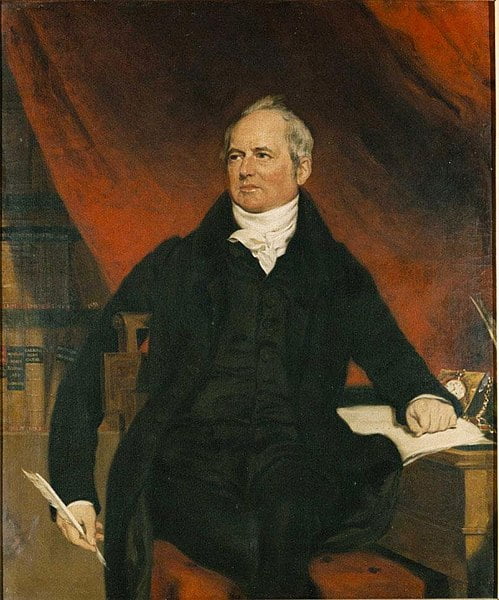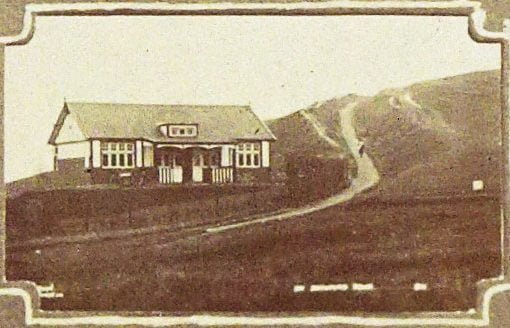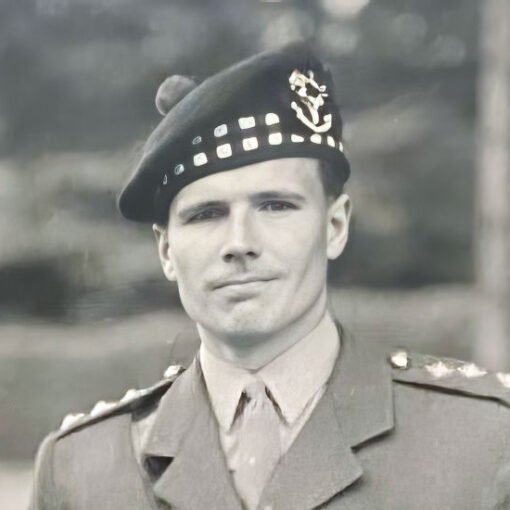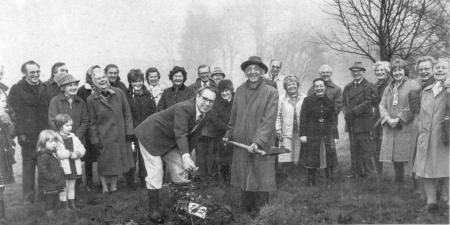A brief account of the life of Rev Thomas Rickman and his son, John
One would like to know more of this painstaking, methodical rector[1]Compton Near Winchester, Being an Enquiry into the History of a Hampshire Parish, by J.S.Drew. Published by Warren & Son, 1939
J.S.Drew
“On the departure of Dr. Newton Ogle in 1776 there arrived in Compton a very enigmatic individual, Thomas Rickman. Of most of the post-reformation clergy we know, at all events, where they were educated and what benefices they had held previously. But not so in the case of Mr. Rickman who appears completely out of the blue. The first thing he did here was to enter in the book he inherited from Dr. Shipman details of the fees, gratuities, etc., he had had to pay at his institution to the living. These amounted to over £41 and included two guineas in tips to the Bishop’s servants. Then, in consultation with the parish clerk, George Cole, he wrote out a list of the fees he himself was entitled to charge for his own services. He worked the parish himself, employing no curate, and the parish books and registers in his time are a model of neatness and precision. After five years he resigned, and disappeared from history, “leaving no trace.” One would like to know more of this painstaking methodical person.”
So runs Part 9 September 1934 from “Compton Clergy of Long Ago” by J.S.Drew which appeared in the Compton Parish Magazine over the first nine months of 1934, with an update on Philip Williams added in October 1935. Extracts are also to be found at Compton Clergy of Long Ago.
“Trace” has been found of Thomas Rickman and here is a short description of his life and his important descendant prepared by Chris Sanders, a trustee of Milford-on-Sea Historical Record Society.
Milford Parish Registers record the baptism of Thomas Rickman’s father William in 1701.[2]James Rickman 21st February 1699, and Willm 26th August 1701 There is a letter by John Rickman, William’s grandson, written to his eldest daughter, which gives an interesting account of his near ancestors.[3]Letter to daughter Anna dated 8 December 1836. “Life and Letters of John Rickman” Orlo Williams, Houghton Mifflin, Boston,1912, p20 He says of his grandfather, William “being a studious lad of good talents was placed in the country house of Mr. Missing, a wealthy merchant at Portsmouth, who dying left a son remarkably unfit for business, which therefore devolved on my grandfather upon his marriage in the year 1729 with the daughter of his former employer.”[4]Ibid. William’s eldest surviving son Thomas was born in 1733 and baptised at St Thomas’ Portsmouth.
William Rickman had become a burgess of Portsmouth in 1726 before his marriage and was elected alderman in 1733 serving as mayor four times. He became a prosperous man through advantageous Government contracts during the war with Spain 1739-1748. His principal home was at Posbrook in the parish of Titchfield but in 1731 William took over the freehold of the whole manor of Milford Baddesley and later acquiring the manors of Hordle Trenchard and Hordle Breamore, all in the ancient parish of Milford. The family visited Milford and worshipped in the parish church having a high pew erected therein 1748.[5]note at end of Parish Register. 1692-1784.
John Rickman takes up the story “William Rickman was practically superseded, and his income fell considerably. Further, he had become surety for his brother, a Custom House collector, in £8,000, a sum which he forfeited on his rascally relative’s absconding. A nephew also lost him £1,500 on another suretyship. William Rickman’s affairs thus fell into decay, so that when he died in 1764 he had sold all his landed property.[6]“Life and Letters of John Rickman” Orlo Williams, Houghton Mifflin, Boston,1912, p21 ” “His son, Thomas Rickman, was at this time on the verge of entering Holy Orders[7]ibid ”
Thomas Rickman was ordained deacon in 1765 by Richard, Bishop of London on 21 December 1765 at the Chapel Royal, St James[8]CCEd Person ID: 108663 Guildhall Library 9548 (Episcopal Act Book). He was ordained priest on 23rd February 1766 at Grosvenor Chapel, Middlesex[9]LRO, B/A/1/21 (Register 1749-68) (Episcopal Register). His ordination was just five days after his father’s will had been proved under his oath in London at the Prerogative Court of Canterbury.
Thomas was appointed vicar of Newburn in Northumberland on 27th February 1766 at the age of 32. The ordinary who approved his appointment was Richard Trevor, Bishop of Durham[10]DUL, MSC, AUC 1/1 (Trevor Act Book) (Act Book). The parish of Newburn was in the gift of Charles Lyttleton, Bishop of Carlisle who had sponsored Thomas’ ordination four days earlier. Newburn parish, Northumberland stands on the River Tyne, approximately five miles up river from Newcastle. The parish church of St Michael and All Angels was founded in 1170. Tyneside may not have been entirely unfamiliar to the young Hampshire vicar as John Rickman, a possible cousin of Thomas’ father, is stated in a loan agreement in 1724 as coming from South Shields.
The next ten years were life changing for the new vicar. A bachelor, he had moved from Hampshire to Northumberland and when he came to leave ten years later it would be with a wife and family of four children. Ann Beaumont of Morpeth [11]Probably baptised 25th November 1731 daughter of George Beaumont. FHL Film Number: 415391 married Thomas Rickman on 14th May 1770. Morpeth is approximately ten miles north of Newburn. The following year twins, John and Rebecca were baptised on 23rd August. Two more daughters were born: Ann was baptised on 22nd December 1773 and finally Mary was baptised on 6th February 1776. [12]All baptisms recorded on FHL Film Number 95024.
John Rickman’s letter omits the fact that he had a twin sister but goes on to record that “in 1776, when the taxes caused by the American war began to pinch, he [Thomas] was offered an exchange and second benefice at Compton, near Winchester.” From church records Thomas was installed Rector of Compton on 15th May 1776[13]CCEd Person ID: 108663 HRO, 21M65 A2/2 (Thomas Act Book) (Act Book) by John Thomas, Bishop of Winchester who was also patron of the living.
It would seem that at the same time (9th May 1776) Thomas was appointed vicar to the parish of Stourpaine, Dorset[14]CCEd Person ID: 108663 W&SRO, D24/1/7 (Subscription Book) by the Dean and Chapter of Salisbury. There are no records of curates for Stourpaine although Thomas must have come to some arrangement for the souls of the parish.
In 1781[15]HRO Ref 21M65/E5/156 TR resigned 3 Jan 1781. Thomas exchanged Compton for the living of Ash near Farnham on the Hampshire/ Surrey border. He was to continue to hold both Ash and Stourpaine until his death in 1809. The patron of Ash was St Mary College, Winchester and he was presented to John Thomas, Bishop of Winchester on 5th February 1781[16]CCEd Person ID: 108663 HRO, 21M65 A2/2 (Thomas Act Book) (Act Book). HRO Ref 21M65/E4/4/93 TR instituted 1 Feb 1781. and admitted as Rector of St Peter’s Ash. He moved to Ash in 1780 and was to continue to serve the parish until 1796. In 1781 he sent his son, John to Guildford Grammar School, seven miles away, where he continued until 1785 when he moved to Magdalen Hall, Oxford where he matriculated. John then migrated to Lincoln College and graduated BA in 1792. Thomas oldest daughter, Rebecca (John’s twin) died in 1786 and was buried on 24th June[17]Ash Parish Register 24th June 1786 burial of Rebecca Rickman.. Seven years later Thomas’ wife Ann was buried at St Peter’s, Ash[18]Ash Parish Register 21st May 1793 burial of Ann Rickman wife of Thomas, Rector..
Thomas continued to live at Ash with his two younger daughters, Ann and Mary for a further three years. In 1796, however, being no longer able to perform divine service, he retired to Christchurch. “Soon after this,” says Rickman in the same letter, “the Income Tax was imposed, and I had some prospect of employment in London. The salary of a curate at Ash was a heavy burden on my father’s income, and the price of provisions was enormous, so that my father upon my leaving the family broke up his little establishment, and went to reside between Lymington and Christchurch with some of his relations.[19]Presumably at Milford although the relations are not identified.” The narrative about his father concludes “This continued till 1803, when upon my being well established in Palace Yard, my father again ventured on housekeeping till he died in 1809.”

There is a memorial plaque on South Wall beside the main door in All Saints Church, Milford. It reads: “Sacred to the memory of the Revd Thomas Rickman late Rector of Ash in Surrey and Vicar of Stourpaine, Dorset. He died 12 August 1809, aged 76 years: and lies buried in the adjacent Church Yard, near to his Parents, and his Brothers. He lived, it is believed, without an Enemy, and died, universally regretted.”
In a letter dated 11th August 1809 John Rickman records ”… am now at Christchurch, summoned to attend the funeral of my good father, who is to be gathered to his ancestors at Milford .. tomorrow. His illness was short … so that he died, as desirable, at a good age and without the sting of mortal dissolution. Peace be to him! A man of milder temper and more general benignity never lived. In the peaceful qualities of the mind, a better man than his son: in activity, perhaps in utility, inferior. You knew him, and I think held his countenance and his heart to be in happy unison.[20]Op. cit. Williams, 1912, pp 148-9. Letter to Robert Southey – later Poet Laureate.”
Thomas’ son, John has already appeared in the narrative of his “painstakingly methodical” father, but there is an important story to be told about the son. In 1796 John Rickman wrote a treatise entitled “Thoughts on the Utility and Facility of Ascertaining the Population of England.”[21]“The Commercial and Agricultural Magazine” Vol 2, London June 1800, pp 391 to 399 Rickman argues that understanding the size of the population is the foundation for legislation, prosperity, defence and the supply of food. He notes that Prussia, America and France have all carried out censuses and goes on to propose a method using parish registers. Moreover he estimates a budget of £740 for the exercise which would take two years to analyse.
The original treatise was sent by George Rose (M.P. for Christchurch) to Charles Abbot M.P. who introduced a bill in the House of Commons which was passed on 3rd December 1800 as an “Act for taking Account of the Population of Great Britain, and of the Increase or Diminution thereof”.
Rickman mentions the census in a letter to Robert Southey the poet, “I have another occupation offered me of which this is the history. At my suggestion they have passed an Act of Parliament for ascertaining the population of Great Britain and as a compliment of course had proposed to me to superintend the execution of it next March. The returns will be made and I should be busy enough for a short time.”[22]Letter from John Rickman to Robert Southey dated December 27th 1800. Extracted from “Life and Letters of John Rickman” Orlo Williams, Houghton Mifflin, Boston,1912, p38
The enumeration took place on Tuesday 10th March 1801 and the enumeration abstracts for England and Wales were ordered to be printed on the 21st December 1801 and for Scotland on the 9th June 1802 while the date of the parish register abstracts was the 21st December 1801. The abstracts and reports were prepared by John Rickman who described himself as “appointed by His Majesty’s Most Honourable Privy Council to digest and reduce into order the above Abstract”.
The resulting enumeration was, unsurprisingly, defective as some parishes had not sent in returns and questions on the numbers of families was poorly answered. Rickman acknowledged that the population was probably larger than was shown by the returns which resulted in an estimate of 9,168,000 for England and Wales. Rickman’s preface to the Abstract of 1831 provides context to the debate thirty years earlier. “A controversy of some duration had existed as to the increase or diminution of the population; and the result of the Act of 1801 being adverse to the opinions of those who had taken a gloomy view of national resources, insinuations were not wanting against the accuracy of the enumeration.”

Public domain, via Wikimedia Commons
Eastwood in the Oxford Dictionary of National Biography concludes “With considerable skill he conducted the first census, which confounded Malthus’s fear of falling population, and then developed tolerably accurate estimates of eighteenth-century population trends. Rickman refined techniques in the 1811 and 1821 censuses, and in 1831 he considerably expanded both the scope of questions and the categorization of occupational groups. At the time of his death, he was working on the still more ambitious 1841 census, which achieved a new sophistication in enumerators’ returns.[23]Eastwood, D. (2004, September 23). Rickman, John (1771–1840), statistician and civil servant. Oxford Dictionary of National Biography. Retrieved 23 Mar. 2021, from … Continue reading”
“By his labours, Rickman earned a well-deserved reputation at home and abroad as a statistician. He became a Fellow of the Royal Society in 1815 and in 1833 received the honorary membership of the Societe Francaise de Statistique Universelle.”[24]Op. cit. Williams, 1912, p42
Acknowledgment
We are very grateful to Chris Sanders, a trustee of Milford-on-Sea Historical Record Society, who contributed this article.
References
| ↑1 | Compton Near Winchester, Being an Enquiry into the History of a Hampshire Parish, by J.S.Drew. Published by Warren & Son, 1939 |
|---|---|
| ↑2 | James Rickman 21st February 1699, and Willm 26th August 1701 |
| ↑3 | Letter to daughter Anna dated 8 December 1836. “Life and Letters of John Rickman” Orlo Williams, Houghton Mifflin, Boston,1912, p20 |
| ↑4 | Ibid. |
| ↑5 | note at end of Parish Register. 1692-1784. |
| ↑6 | “Life and Letters of John Rickman” Orlo Williams, Houghton Mifflin, Boston,1912, p21 |
| ↑7 | ibid |
| ↑8 | CCEd Person ID: 108663 Guildhall Library 9548 (Episcopal Act Book) |
| ↑9 | LRO, B/A/1/21 (Register 1749-68) (Episcopal Register) |
| ↑10 | DUL, MSC, AUC 1/1 (Trevor Act Book) (Act Book) |
| ↑11 | Probably baptised 25th November 1731 daughter of George Beaumont. FHL Film Number: 415391 |
| ↑12 | All baptisms recorded on FHL Film Number 95024. |
| ↑13 | CCEd Person ID: 108663 HRO, 21M65 A2/2 (Thomas Act Book) (Act Book) |
| ↑14 | CCEd Person ID: 108663 W&SRO, D24/1/7 (Subscription Book) |
| ↑15 | HRO Ref 21M65/E5/156 TR resigned 3 Jan 1781. |
| ↑16 | CCEd Person ID: 108663 HRO, 21M65 A2/2 (Thomas Act Book) (Act Book). HRO Ref 21M65/E4/4/93 TR instituted 1 Feb 1781. |
| ↑17 | Ash Parish Register 24th June 1786 burial of Rebecca Rickman. |
| ↑18 | Ash Parish Register 21st May 1793 burial of Ann Rickman wife of Thomas, Rector. |
| ↑19 | Presumably at Milford although the relations are not identified. |
| ↑20 | Op. cit. Williams, 1912, pp 148-9. Letter to Robert Southey – later Poet Laureate. |
| ↑21 | “The Commercial and Agricultural Magazine” Vol 2, London June 1800, pp 391 to 399 |
| ↑22 | Letter from John Rickman to Robert Southey dated December 27th 1800. Extracted from “Life and Letters of John Rickman” Orlo Williams, Houghton Mifflin, Boston,1912, p38 |
| ↑23 | Eastwood, D. (2004, September 23). Rickman, John (1771–1840), statistician and civil servant. Oxford Dictionary of National Biography. Retrieved 23 Mar. 2021, from https://www.oxforddnb.com/view/10.1093/ref:odnb/9780198614128.001.0001/odnb-9780198614128-e- 23605. |
| ↑24 | Op. cit. Williams, 1912, p42 |




